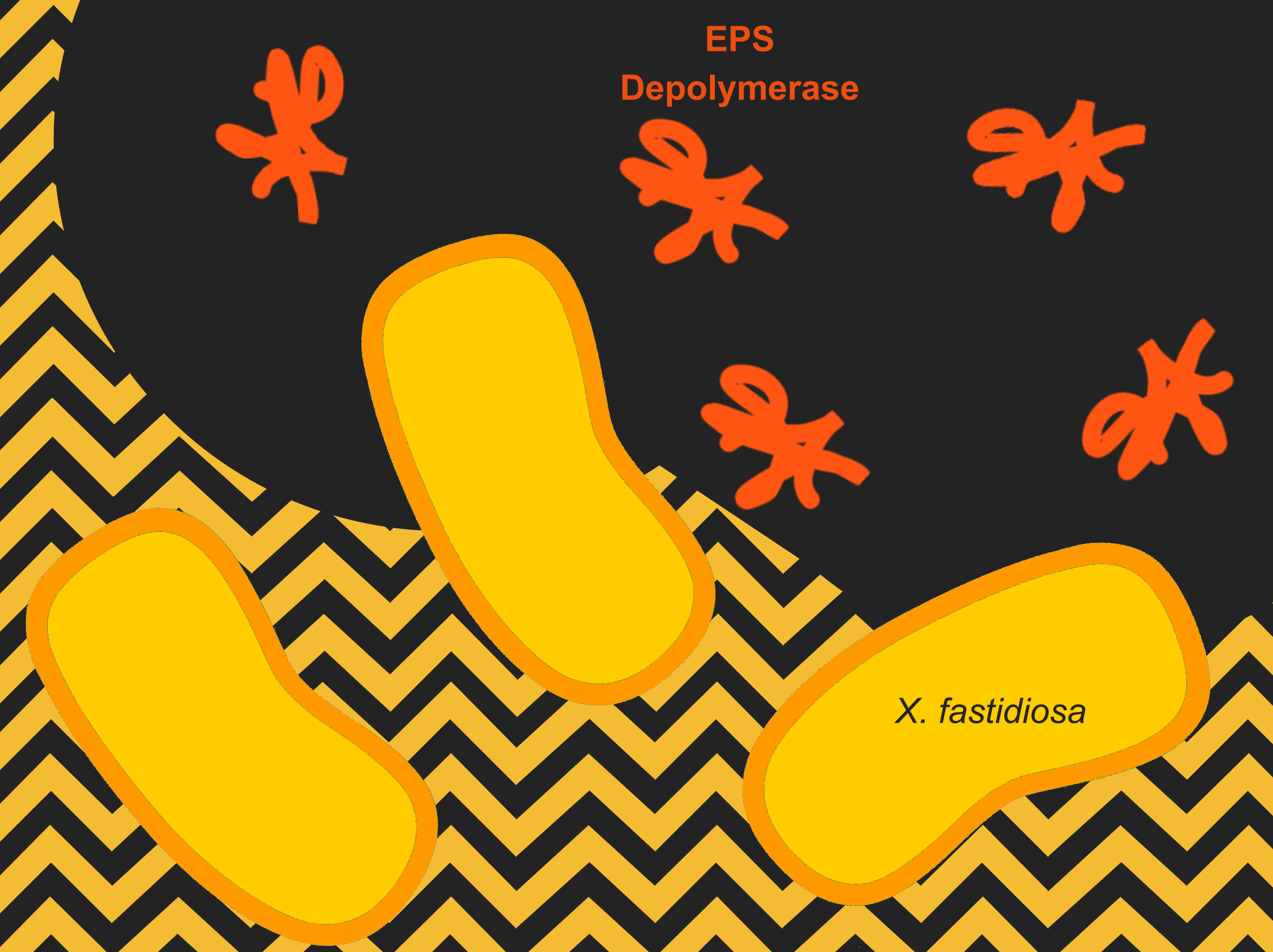EPS Depolymerase
To fight the problem that is Xylella fastidiosa we firstly started searching for natural solutions against this bacterium and surely, we found bacteriophages that loved destroying this bacterium. Many phages have a devious way to infect the bacterium; by cleaving the sugar bond in the biofilm and then adsorbing on the bacterial membrane, it sets off a series of events leading to the injection of the bacteriophage genome in the bacterium, triggering the life cycle of the phage.
X. fastidiosa is a Gram-negative bacterium from the gammaproteobacteria familie. The symptoms observed in plants are the result of water stress resulting from occlusion of Xylem vessels by bacterial biofilm and/or accumulation of extracellular polysaccharides, and the subsequent blockage of xylem vessels with pectins, tyloses and gums produced by the plant host in response to X. fastidiosa infection.
One strategy was put in place to manage this serious pathogen and that is to inject the host with bacteriophages which are a class of extremely specific viruses that infect bacteria and lack the ability to infect more complex organisms such as mammals. Using phage will limit the long term effect to the soil or the microflora even to the animals that consume the fruits. The goal of this design isn’t to threat X. fastidiosa or to prevent the infection, but to use a enzyme called EPS-depolymerase.


